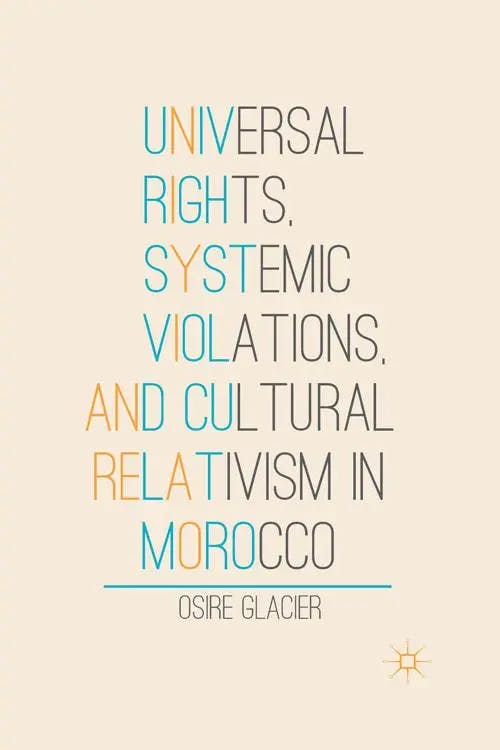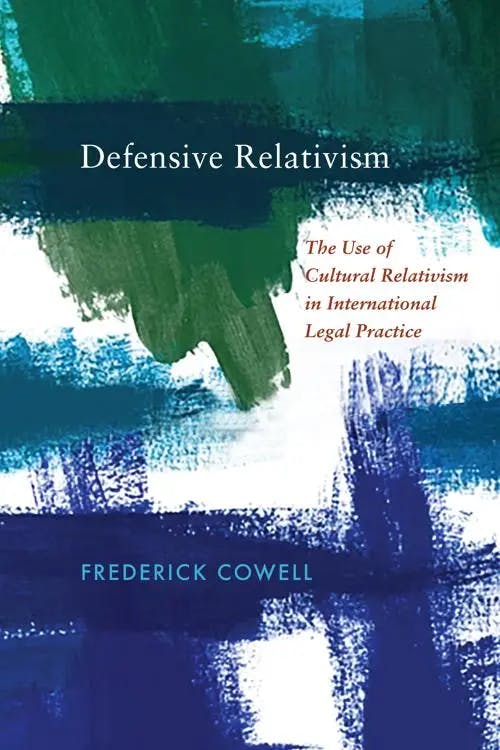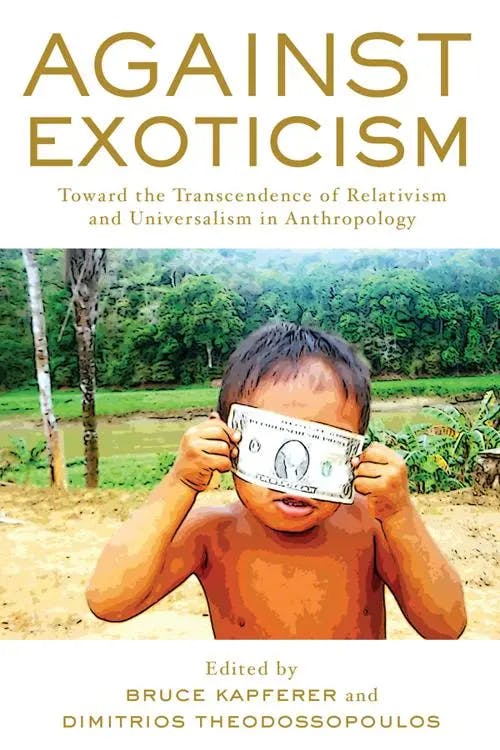What is Cultural Relativism?
MA, Gender Studies (London School of Economics & Political Science)
Date Published: 06.03.2023,
Last Updated: 28.09.2023
Share this article
Defining Cultural Relativism
Cultural Relativism is “the position according to which local cultural traditions (including religious, political, and legal practices) properly determine the existence and scope of civil and political rights enjoyed by individuals in a given society.” (Tesón, 1984). Although not responsible for coining the term, the concept of Cultural Relativism is often attributed to anthropologist Franz Boas, sometimes referred to as the ‘father of American anthropology’. In Museums of Ethnology and Their Classification, Boas writes,
It is my opinion that the main object of ethnological collections should be the dissemination of the fact that civilization is not something absolute, but that it is relative, and that our ideas and conceptions are true only so far as our civilization goes. (1887)
To understand what Cultural Relativism is, it’s important that we know what it is not. Cultural Relativism is the opposite of Ethnocentrism. Ethnocentrism is where an individual applies the tenets of their own culture or ethnicity to a different culture or ethnicity and judges its merits from that frame of reference. Contrastingly, Cultural Relativism argues that societies and their norms and practices should not be judged by our own personal frame of reference. Applying Cultural Relativism as a methodology to research requires awareness of researcher bias- the phenomena where a researcher’s own beliefs, experiences, values and attitudes can adversely impact the outcome of a study.
How does Cultural Relativism relate to different fields of study?
Cultural Relativism emerged from and is primarily applied to the field of Anthropology; Anthropology’s morally complex history is exemplified in the enduring ‘othering’ and exotifying of non-Western cultures- notably cultures in the Global South. Cultural Relativism resisted the “corrective and modernizing application of the West” (Ansari, 2021) that was commonplace amongst early anthropological researchers- allowing cultures and communities to be interpreted from a more neutral and less judgemental standpoint. However, the contemporary application of Cultural Relativism expands beyond Anthropology into the fields of Psychology, Sociology and International Relations. Where the study of human behaviour requires a trans-cultural approach, Cultural Relativism is a tool often applied.
However, Cultural Relativism is also grounded in Philosophy; the study of the human condition and cultural practices is central to philosophical study and as Marcelo Dascal writes in Cultural Relativism and Philosophy: North and Latin American Perspectives (1991):
No philosopher can simply go on working on her preferred brand of philosophical puzzles with the help of the set of tools she has laboriously mastered. Inevitably the lurking question will surface: has all of this any universal significance? Or is it inevitably tainted by the philosopher’s cultural, political, historical or personal bias?
Cultural Relativism has become a methodology which can be applied across disciplines. This methodology allows us to challenge how one person can, misguidedly, superimpose their own culture’s values and convictions onto the analysis of the practices of another culture. In doing so, an awareness of what is subjective to culture and what is objective and universal within the human condition emerges.
Applying Cultural Relativism to real-world issues
In Do Muslim women really need saving? Anthropological reflections on cultural relativism and its others, Palestinian-American Anthropologist Lila Abu-Lughod discusses “The Politics of The Veil”; the moral debate surrounding the practice of women, particularly Afghan women, wearing burqas. Abu-Lughod notes that it was expected by Americans that upon liberation from the Taliban by the US military, Afghan women would immediately remove their burqas, which were enforced under Taliban rule. But as Abu-Lughod points out, the burqa was not a Taliban invention and has, historically, yielded benefits to the women who wore them. It is noted that burqas have been described by other anthropologists as “portable seclusion”- and burqas, amongst other forms of cover, could “assure their protection in the public sphere from the harassment of strange men”. Although Abu-Lughod notes the fundamental issues with veiling being imposed by the state, she also protests against the “reductive interpretation of veiling as the quintessential sign of women's unfreedom” that was largely assumed by Americans.
Abu-Lughod’s writing highlights the merits of Cultural Relativism; that the Western, black-and-white interpretation of veiling practices does not account for the complex and nuanced histories around veiling that exist within non-American cultures. Veiling being judged by Western standards is Ethnocentric, and encourages scholars to overlook the complexities of this practice and make judgements which are ill-informed and, as Abu-Lughod notes, reductive.
Of course, Cultural Relativism cannot be used to explain perceived inequality and oppression in all social contexts. In Universal Rights, Systemic Violations, and Cultural Relativism in Morocco by Osire Glacier and Valérie Martin, Glacier & Martin focus on how cultures and practices in Morocco have been used to defend violence and injustice on the global political stage and in research. Of the issue of Female Genital Mutilation (FGM), Glacier & Martin write,
Using the mutilation of female sex organs as an example, certain studies argue that local populations, tied to their folklore and traditions, resist these rights. However, these studies fail to examine the possibility of politics producing folklore and traditions… For the Convention against Torture project, however, the Moroccan state, representing the views of the ruling elite, clearly argued for the cultural relativism of fundamental rights. (2013)
Osire Glacier, Valérie Martin
Using the mutilation of female sex organs as an example, certain studies argue that local populations, tied to their folklore and traditions, resist these rights. However, these studies fail to examine the possibility of politics producing folklore and traditions… For the Convention against Torture project, however, the Moroccan state, representing the views of the ruling elite, clearly argued for the cultural relativism of fundamental rights. (2013)
In cases such as this, it becomes evident that applying Cultural Relativism can still lend researchers to misinterpretation of cultures, in the opposite direction. An incomplete comprehension of sources and information may encourage scholars to wrongly interpret social practices as widely accepted- or, as we will soon discuss, acceptable on the grounds of cultural preservation.
Criticisms of Cultural Relativism
Cultural Relativism is sometimes criticised on the grounds of morality. These criticisms suggest that there are fundamentally good and bad social practices and that holding a culture to their own standard can mean overlooking these fundamentals. In response to the 9/11 terrorist attacks, US Republican Politician William J Bennett wrote Why We Fight: Moral Clarity and the War on Terrorism. In Bennett’s book he criticised Cultural Relativism, stating that it “implies that we have no basis for judging other peoples and cultures, and certainly no basis for declaring some better than others, let alone ‘good’ or ‘evil’” (Bennett, 2002).
However, this is a great example of Cultural Relativism being misconstrued as Moral Relativism. Where Moral Relativism is used to argue that there is no universal or ‘absolute’ set of moral principles, Cultural Relativism is primarily to be used as a research methodology. As argued by Caleb Rosado in Understanding cultural relativism in a multicultural world,
While breeding a healthy skepticism as to the eternity of any value prized by a particular people, anthropology does not as a matter of theory deny the existence of moral absolutes. Rather, the use of the comparative method provides a scientific means of discovering such absolutes. If all surviving societies have found it necessary to impose some of the same restrictions upon the behavior of their members, this makes a strong argument that these aspects of the moral code are indispensable.” (1990)
Unfortunately, Cultural Relativism is sometimes used as such- to deny the existence of moral absolutes. Because Cultural Relativism requires that we do not judge what is normal or abnormal in a culture compared to our own, sometimes this creates challenges in political or legal systems where cultural differences are used to resist the preservation of fundamental human rights. This is called Defensive Relativism- which is explored at length in Defensive Relativism: The Use of Cultural Relativism in International Legal Practice by Frederick Cowell.
In this book, Cowell introduces us to Defensive Relativism by detailing the imprisonment of two men in Malawi, who conducted an engagement ceremony for themselves. These two men were found guilty of “gross acts of indecency” and sentenced to fourteen years’ prison time with hard labour. Malawi’s penal code, which originated in colonial-era laws imposed by the British, was incorporated into their legal system upon their independence in 1964. In response to international criticism of this imprisonment, Malawi’s Deputy Attorney General’s response was as follows,
They were common criminals, he argued, who had staged the entire thing to attack the Malawian government after being provoked by NGOs such as Amnesty International. Dealing directly with the argument that Malawi’s penal code violated the ICCPR [International Covenant on Civil and Political Rights], he said that the laws were a reflection of Malawian traditions, and that international human rights law should not interfere in matters considered criminal in Malawi. As campaigners later pointed out, the traditions in question were by no means monolithic, and popular hostility to the rights of a minority had previously been rejected by the HRC [Human Rights Committee] as a justification for the criminalization of sexual orientation. (2022)
Frederick Cowell
They were common criminals, he argued, who had staged the entire thing to attack the Malawian government after being provoked by NGOs such as Amnesty International. Dealing directly with the argument that Malawi’s penal code violated the ICCPR [International Covenant on Civil and Political Rights], he said that the laws were a reflection of Malawian traditions, and that international human rights law should not interfere in matters considered criminal in Malawi. As campaigners later pointed out, the traditions in question were by no means monolithic, and popular hostility to the rights of a minority had previously been rejected by the HRC [Human Rights Committee] as a justification for the criminalization of sexual orientation. (2022)
Cowell goes on to describe this as a clear example of defensive relativism, described by him as “the state practice of cultural relativism to resist implementing human rights law”. This application of Cultural Relativism expands it beyond its standard use as a methodological tool of inquiry and creates a justification for acts of cruelty and injustice- in the name of cultural preservation.
Debates around the applicability of Cultural Relativism and the validity of its merits continue within scholarly communities. Ultimately it seems that Cultural Relativism, rather than being a one-size-fits-all approach to scientific inquiry, should be utilised on a case-by-case basis as a methodological tool. It allows a different lens to be applied to cultures and situations which differ from what is familiar to a researcher or scholar- a lens which may yield valuable insight. Understanding Cultural Relativism allows us to avoid the pitfalls of Ethnocentrism, but should not be conflated with Moral Relativism. As the fields of human studies progress, Cultural Relativism as a tool of inquiry will likely need to adapt, alter and develop in response to these criticisms and limitations.
Significant texts on the subject of Cultural Relativism
Some anthropologists believe that Cultural Relativism is too reductive an approach to research. Bruce Kapferer and Dimitrios Theodossopoulos argue in Against Exoticism: Toward the Transcendence of Relativism and Universalism in Anthropology that Cultural Relativism does not negate the exotifying or othering of cultures and communities. As Kapferer and Theodossopoulos write,
It is in the failure by anthropologists to recognize their relativism within the universal that they can fall into the trap of exoticism, that is, misconceive a real difference as merely a variation in the universal. (2016)
Bruce Kapferer, Dimitrios Theodossopoulos
It is in the failure by anthropologists to recognize their relativism within the universal that they can fall into the trap of exoticism, that is, misconceive a real difference as merely a variation in the universal. (2016)
Their writing on this subject is essential for any scholar looking to better understand former and contemporary anthropological practices on communities in the Global South. Given the interdisciplinary origins of Cultural Relativism, a comprehensive understanding of the subject may require exploration from a more philosophical perspective. Derek Robbins’ Cultural Relativism and International Politics bridges the gap between the philosophical theory and practical application of Cultural Relativism very effectively. For those looking for a deep-dive into Cultural Relativism’s ties to other concepts, Ramakanta Bal’s Cultural Pluralism and Relativism situates the discussion around Cultural Relativism within postmodernist discourses and sheds light on the epistemological challenges of both Cultural Relativism and Postmodernism.
Further Cultural Relativism Resources & Reading on Perlego
Scorekeeping Thick Ethical Concepts: An Investigation of Cross-cultural Moral Disagreement and Relativism- Xianduan Shi
Domestication Of International Human Rights Treaties- John Kamya
Human Rights in Iran: The Abuse of Cultural Relativism- Reza Afshari
The Psychic Unity of Mankind- Niccolo Caldararo
Cultural Relativism in the Face of the West- Bret Billet
Bibliography
Abu‐Lughod, L. (2002). Do Muslim women really need saving? Anthropological reflections on cultural relativism and its others. American anthropologist, 104(3), 783-790.
Ansari, S. (2021) Feminism versus Cultural Relativism: Is There a Universal Muslim Woman in Need of Saving? Tezhib Vol II.
Bennett, W. J. (2002). Why we fight: Moral clarity and the war on terrorism. New York: Doubleday.
Boas, F. (1887). Response: Museums of Ethnology and Their Classification. Science, (228), 587-589.
Dascal, M. (Ed.). (1991). Cultural relativism and philosophy: North and Latin American perspectives (Vol. 7). Brill.
Rosado, C. (1994). Understanding cultural relativism in a multicultural world. The Elements of Moral Philosophy, 15-29.
Tesón, F. R. (1984). International human rights and cultural relativism. Va. j. Int'l L., 25, 869.
MA, Gender Studies (London School of Economics & Political Science)
Georgie Williams is a deferred doctoral student in the field of Social Justice at University College Dublin and founder of gender & sexuality research hub, /Queer. Georgie’s research predominantly focuses on the development of gender and sexuality related social practices in post-colonial countries and the application of reflexive feminist methodologies to anthropological and sociological field research.



